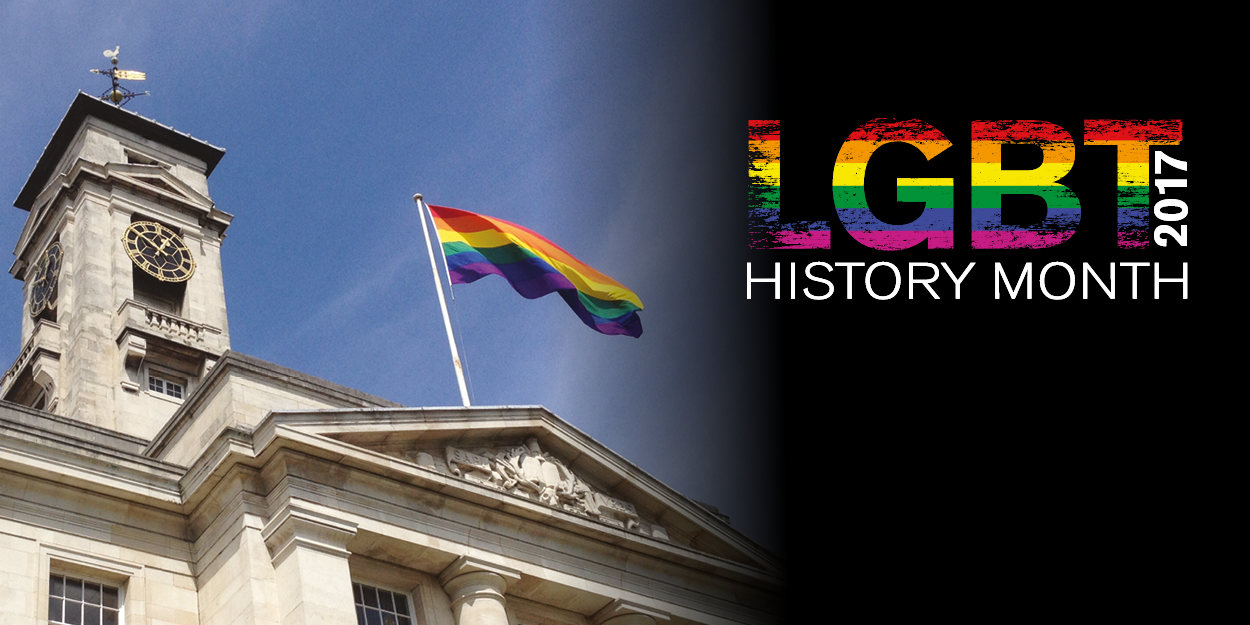
March 10, 2017, by Claire Henson
Reflections on LGBT History Month 2017
Ibtisam Ahmed, Doctoral Research student in the School of Politics & International Relations and Project Director for the Centre for Research in Race and Rights’ contribution to the University’s LGBT History Month, looks back at a packed month.
Marginalised groups around the world are at an unusual point in history. There seems to be a growing shift towards reactionary socio-politics that are putting these groups at renewed risk. At the same time, there are an increasing number of platforms for groups to mobilise, raise awareness, and gain solidarity. One such platform is the use of periods that are specifically dedicated towards these goals and in February, the UK’s commemoration of LGBT History Month is a key example.
In 2017, the University of Nottingham ran a plethora of events for LGBT History Month, with a larger number of events than ever before. What was particularly important was an underlying thread of intersectionality. Even in events that were ostensibly only about the LGBT community, there was a strong acknowledgement that those within the community also face issues with regards to other aspects of their identities. The events, all fully accessible and almost all completely free, covered a wide range of formats, thus providing options for anyone interested in engaging with the month.
Panel discussions were held that dealt with various LGBT groups that work in Nottinghamshire, representatives of Pride from three different countries, and a research showcase on LGBT scholarship across departments at UoN and NTU. Film screenings shared queer cinema from different parts of the globe and dealt with gender fluidity, mental health, the history of trans activism, and racism, in turn.
The nature of authority was interrogated at three events, one dealing with the history of LGBT victims in the Third Reich (held in January as part of Holocaust Remembrance commemorations), one on police responses to hate crime, and the closing event of the month which looked at LGBT refugees and asylum seekers. At the same time, grassroots involvement and activism were highlighted at the Nottingham community panel event, an event that looked at minority identities within the wider community, and one which looked specifically at the political upheaval in the current climate.
By involving and highlighting LGBT voices, the events held in February cut across a lot of very important concerns. Crucially, it was not just one vision of the community that was represented. The various genders and sexualities were engaged with, and so were issues involving race, religion, nationality, class, health and disability, and even age. In doing so, LGBT History Month 2017 has hopefully created a space for important conversations to be had, for the community to have its agency be recognised, for allies to engage with these issues respectfully, and – most importantly – for people to recognise that these are not just discussions that are limited to one month, but should be had every single day.
That the University of Nottingham Human Rights Law Centre is hosting a conference on LGBT equality in March and Nottingham Trent University is hosting another on queer modernisms in April means that the academic community in the city has already tapped into that ongoing potential. Hopefully, with other events such as Nottinghamshire Pride and various other grassroots groups being involved, this will be a truly fruitful endeavour.
A huge thank you to everyone involved in the programme, including our event participants, organisers and chairs, and to all that attended. The University will be planning events for LGBT History Month 2018 later this year, so if you’d like to be involved, please get in touch with the People and Culture Team.
No comments yet, fill out a comment to be the first

Leave a Reply